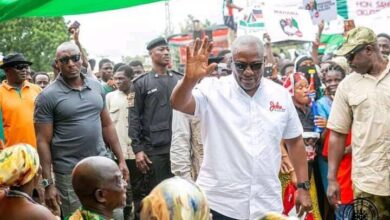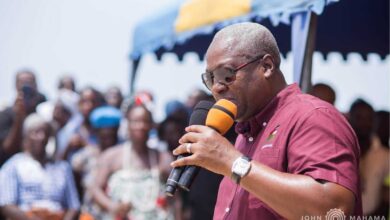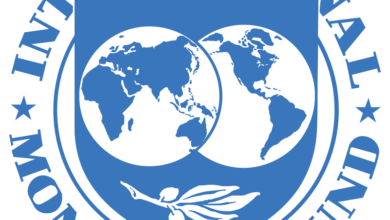Amid Ghana’s profound economic challenges, the demand for effective leadership has reached a critical juncture. With the upcoming elections on the horizon, the debate over what defines im-pactful leadership has become paramount. Against this backdrop, the recent challenge by Dr. Bawumia, the NPP flag bearer, to John Mahama of the NDC for a debate has ignited considerable controversy.
The prevailing sentiment among many Ghanaians is unequivocal: now is not the time for mere rhetoric or theatrical debates. Ghana urgently requires leaders with practical solutions, not just adeptness in verbal sparring. Skepticism towards political debates reflects a deeper frustration with leaders who promise much but deliver little in terms of tangible progress.
Dr. Bawumia, renowned for his economic acumen and numerous lectures, faces criticism for his perceived failure to translate insights into actionable policies that effectively tackle Ghana’s economic woes. The prevailing sentiment suggests that voters are increasingly disillusioned with hollow promises and seek substantive ideas that can foster tangible improvements in education and economic stability.
The Educate Africa Institute (EAI) has entered the fray, urging all presidential and parliamentary candidates to move beyond rhetoric and present comprehensive plans for the nation’s future. This stance underscores a growing consensus among Ghanaians that visionary leadership is urgently needed.
Ghana’s educational system, long regarded as central to its development strategy, is in urgent need of reform. Issues such as access to quality education, teacher training, and curriculum development demand immediate attention. Similarly, the economic terrain necessitates innovative strategies to foster sustainable growth, generate employment, and ensure equitable resource distribution.
As the campaign heats up, Ghanaians find themselves at a crossroads, demanding leaders who embody competence, transparency, and accountability. Voter skepticism towards conventional political rhetoric mirrors a broader yearning for leaders capable of delivering on their promises and driving substantive change.
While a debate between political rivals can serve as a platform for discourse, actions will ultimately speak louder than words. Ghanaians seek leaders who can transcend partisan divides and propose concrete solutions to their nation’s challenges. The future of Ghana hinges on its leaders’ ability to heed this call and navigate the country towards prosperity and progress.
William Boadi
Executive Director of Educate Africa Institute (EAI), Educationist, Political analyst and Social Worker.





